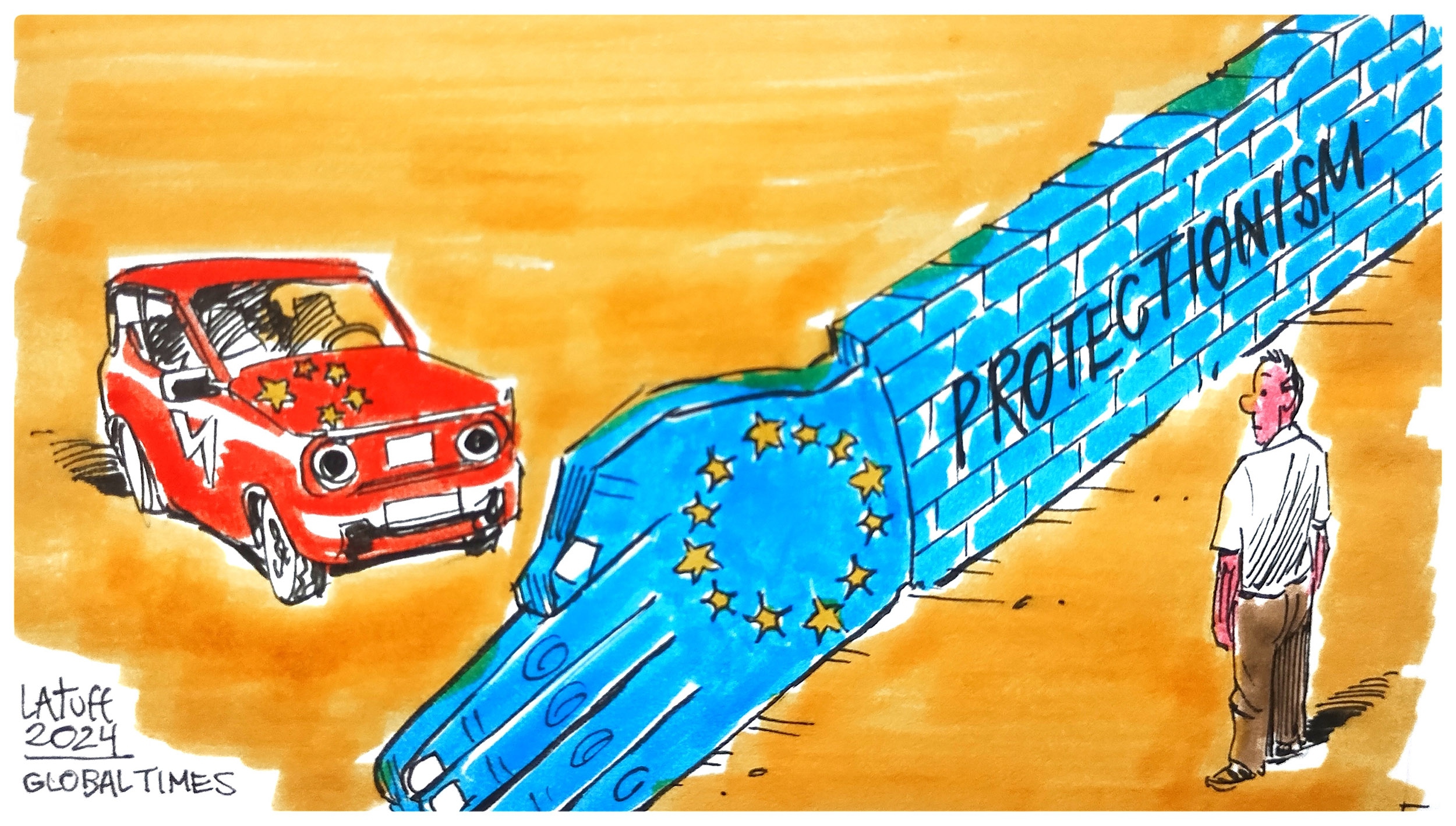
Cartoon: Carlos Latuff
The China Chamber of Commerce for Import and Export of Machinery and Electronic Products (CCCME) warned on Friday that EU members' backing of anti-subsidy measures targeting Chinese electric vehicle (EV) companies will lead to a loss of investment. The remarks came in response to the EU's Foreign Subsidies Regulation (FSR) -- a regulation known for its role in primarily deterring foreign companies, especially Chinese investors.
Many EU countries have long hoped that Chinese EV companies would invest and set up factories in Europe. Analysts suggest that the European Commission (EC)'s imposition of anti-subsidy duties on Chinese EVs, which will suppress the export of corresponding Chinese products to Europe, is aimed at pushing Chinese companies to invest in Europe, thus boosting the EU's automotive industry, creating local jobs, and achieving green and sustainable development goals. However, the CCCME warned that "the reaction from Chinese companies indicates that the EU's approach has had the opposite effect."
Before the EU initiated its anti-subsidy investigation into electric vehicles, many Chinese car manufacturers had already begun or planned to invest in or establish operations in Europe. "Since the EC decided to impose temporary anti-subsidy duties on Chinese EVs, the Chinese EV industry has expressed strong opposition to the EU's actions… Many Chinese companies have voiced significant concerns to our chamber regarding the investigation's results and the potential risks of facing scrutiny under the EU's FSR in their European investments," the CCCME said.
Since the beginning of this year, the EU has launched five investigations under the FSR into Chinese companies. To date, there have been three in-depth investigations, one proactive investigation, and one unannounced raid, with all three in-depth investigations forcing Chinese companies to withdraw from bidding projects.
The EU's multiple investigations targeting Chinese companies are clearly discriminatory, severely distorting an environment of fair competition, and bringing significant risks and uncertainties to Chinese companies operating in or investing in Europe, the CCCME stressed on Friday.
The CCCME warned that the "subsidy label" identified in the EU's anti-subsidy probes over Chinese EVs is likely to become an excuse for future investigations under the FSR into Chinese investors in Europe, raising deep concerns among enterprises.
The EU's logic in targeting Chinese companies in the bloc is to avoid "any perceived influence" on its rules from foreign investments, as it has now linked the construction of a single internal market with the regulation and management of foreign investments, Cui Hongjian, a professor at Beijing Foreign Studies University's Academy of Regional and Global Governance, told the Global Times on Friday.
This kind of approach by the EU is significantly impacting the overall market confidence and investment environment within the bloc, as it raises trade and investment barriers. "This, in turn, not only affects international market confidence in investing in the EU, but also causes concerns among many EU companies that such practices could lead to reciprocal treatment abroad, which could create substantial problems for European capital seeking to invest overseas," Cui noted.
Global Times




